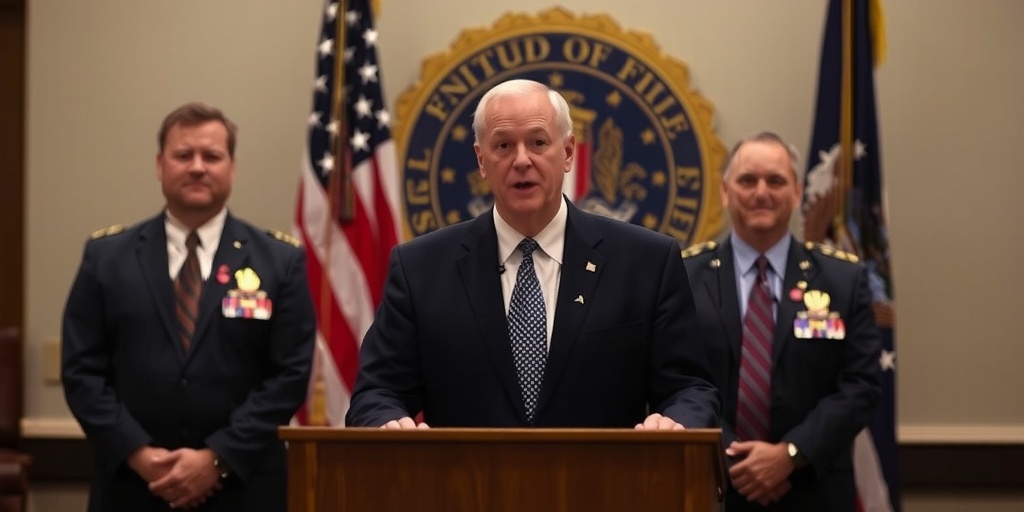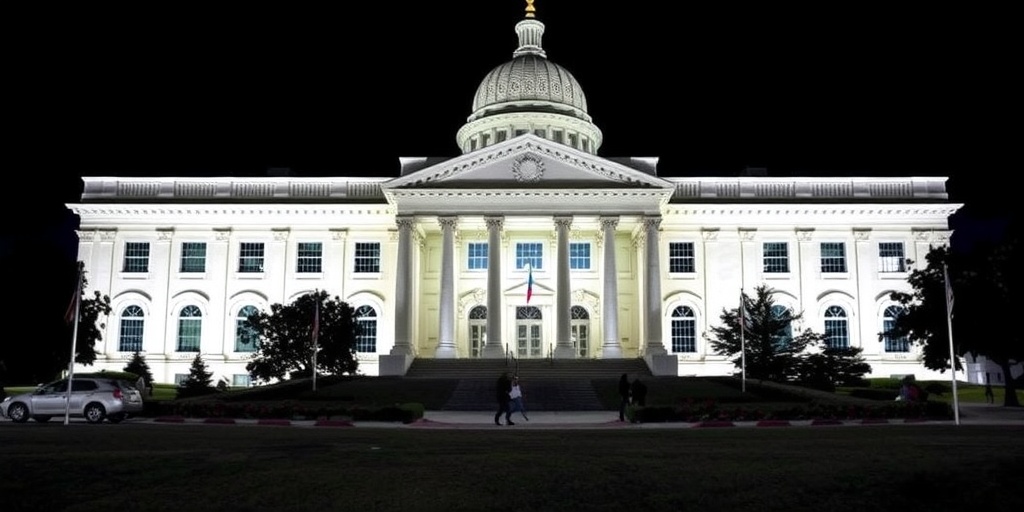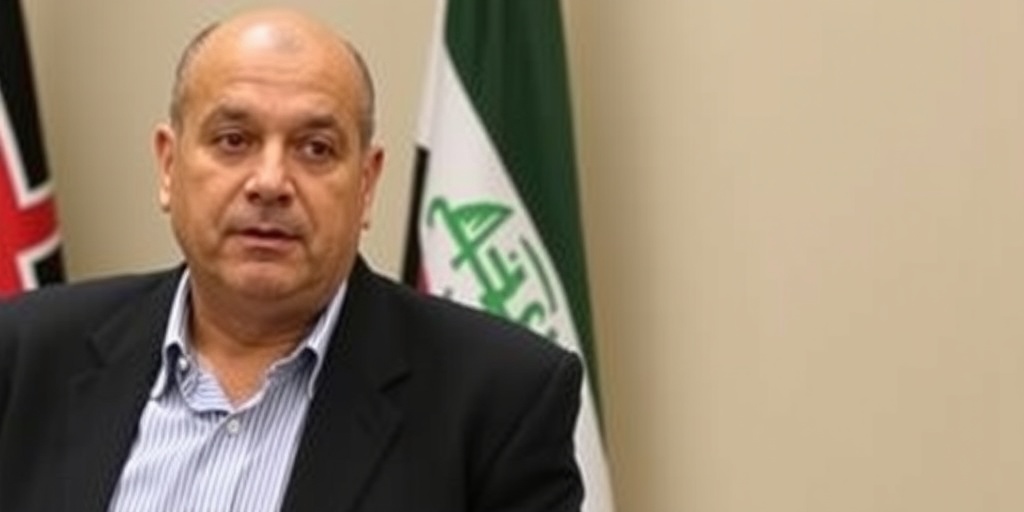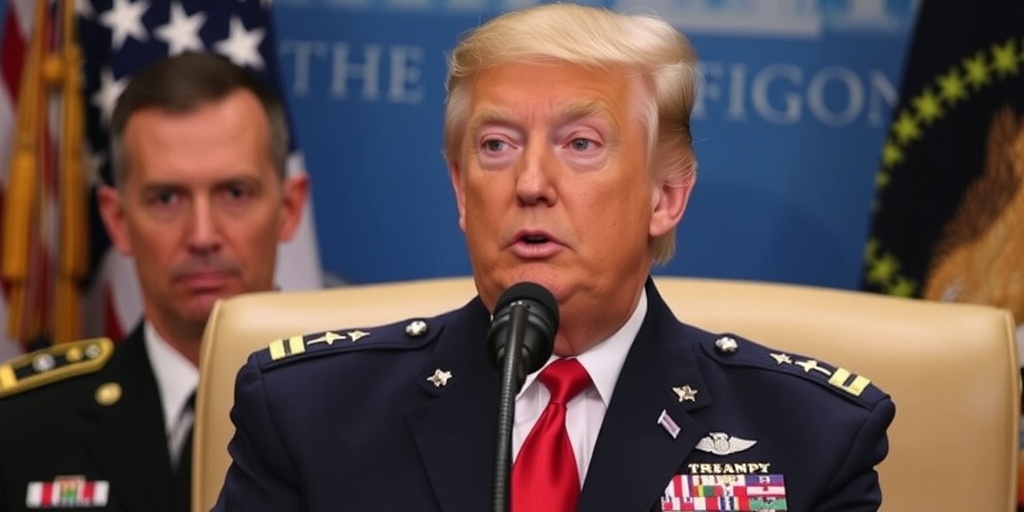Now Reading: FBI Director Shifts Hundreds of Agents to Field Offices
-
01
FBI Director Shifts Hundreds of Agents to Field Offices
FBI Director Shifts Hundreds of Agents to Field Offices

FBI Director Promises Major Reorganization to Combat Violent Crime
In a bold move that has sent ripples through the Federal Bureau of Investigation (FBI), newly appointed director Kash Patel announced his plans to redistribute agency resources across the United States, a strategy aimed at refocusing efforts on combating violent crime. On Friday, Patel informed bureau officials of his intention to deploy 1,000 agents from the Washington, D.C. area to various field offices nationwide, while an additional 500 support staff will be reassigned to the FBI’s expansive campus in Huntsville, Alabama. The swift nature of these changes has taken many within the agency by surprise and raised concerns about potential disruptions to ongoing operations.
Patel, who recently secured his position following contentious Senate confirmation hearings, has indicated a clear desire to reduce the size of the FBI’s headquarters, which he views as excessively large and inefficient. The specifics regarding when and how current employees will be selected to relocate have yet to be disclosed; however, sources indicate that the agents will likely be sent to cities grappling with high crime rates. In a statement, the FBI emphasized Patel’s commitment to positioning agents in communities to actively tackle the challenges posed by violent crime.
This inclination towards significant restructuring aligns with Patel’s previous public declarations of intent to overhaul the agency. In a recent interview, he criticized the FBI for what he perceives as inherent biases against conservative interests. “I’d shut down the FBI Hoover Building on Day 1 and reopen it the next day as a museum of the ‘deep state,’” Patel remarked on the podcast “The Shawn Ryan Show,” reflecting his radical approach. He further urged agents to realign their focus, stating, “You’re cops—go be cops,” signaling a return to the FBI’s fundamental mission.
Previously, the Justice Department had initiated forced retirements of multiple senior agents, eliminating experienced personnel from the FBI’s ranks for unexplained reasons. This substantial shift in staffing has prompted concerns about the implications for the agency’s overall effectiveness. In conjunction with Patel’s restructuring plans, support staff working on the upper floors of headquarters, where senior officials are based, have been instructed to relocate, a move that may signal a broader cultural shift within the agency.
Patel’s commitment to reorganizing the FBI is also echoed in his remarks during his Senate confirmation hearing. He highlighted the significant number of employees located in the Capitol region—approximately 11,000 out of 38,000 overall—stating that such concentration was inefficient. With the FBI’s training academy and vital operational units situated in nearby Quantico, Virginia, he expressed a desire to redistribute resources to enhance the agency’s field presence across the nation.
By shifting agents out of the capital, Patel aims to ensure that the FBI is better equipped to address crime issues directly affecting communities. “I will do that over and over and over again because the American people deserve the resources, not in Washington, D.C., but in the rest of the country,” he asserted during his testimony to the Senate.
However, the logistics of relocating such a substantial number of FBI employees raise questions about the practicality and costs associated with these transformations. As the Trump administration prioritizes cost-cutting measures, led by billionaire entrepreneur Elon Musk, it has requested lists of probationary employees and evaluated the viability of retaining nearly a thousand agents. This could lead to pronounced reductions in staff across the agency.
Concerns about the efficacy of this restructuring have been voiced by former FBI officials. Chris Piehota, a senior FBI executive who retired in 2020, urged Patel to conduct a thorough examination of the agency’s current programs and workforce before implementing such large-scale changes. “You need to get in there and see behind the curtains,” he warned, emphasizing the delicate balance Patel must maintain between recalibrating the organization and preserving operational efficacy.
While the extent of Patel’s plans remains somewhat unclear, reports indicate that he is assembling an advisory team of both former and current agents to assess the bureau’s functioning comprehensively. In correspondence sent to FBI employees, Patel mentioned a commitment to streamlining operations at headquarters to strengthen the presence of field agents across the country.
This is not the first time an FBI director has attempted to diminish the number of agents based in Washington, D.C. In the 1990s, Director Louis Freeh undertook a similar endeavor, moving hundreds of agents and supervisors from desk jobs in the capital to active law enforcement roles, thereby emphasizing the importance of fieldwork in achieving the agency’s objectives.
As Patel embarks on this challenging journey of transforming the FBI’s structure, the implications of his decisions will likely be closely monitored and debated within law enforcement circles and the public eye. His ambitious vision for the FBI has the potential to redefine the agency’s operational focus, but it remains to be seen how effectively these changes can be realized without sacrificing the agency’s critical mission.
Stay Informed With the Latest & Most Important News
Previous Post
Next Post
-
 01New technology breakthrough has everyone talking right now
01New technology breakthrough has everyone talking right now -
 02Unbelievable life hack everyone needs to try today
02Unbelievable life hack everyone needs to try today -
 03Fascinating discovery found buried deep beneath the ocean
03Fascinating discovery found buried deep beneath the ocean -
 04Man invents genius device that solves everyday problems
04Man invents genius device that solves everyday problems -
 05Shocking discovery that changes what we know forever
05Shocking discovery that changes what we know forever -
 06Internet goes wild over celebrity’s unexpected fashion choice
06Internet goes wild over celebrity’s unexpected fashion choice -
 07Rare animal sighting stuns scientists and wildlife lovers
07Rare animal sighting stuns scientists and wildlife lovers





















